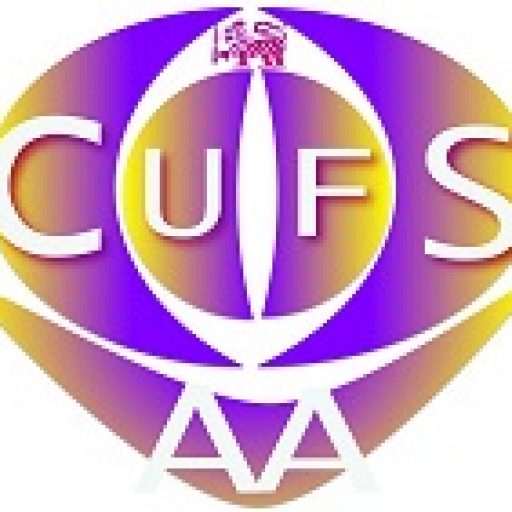Background
The Department of Physics at the University of Colombo needs to expand its focus into nanomaterials, microelectronic devices, and energy storage technologies to keep up with the current advanced technologies and perform value-added research that bridges natural resources (graphite, mica, ilmenite etc.) towards technological innovations.

However, the department currently lacks the necessary instrumentation to synthesize advanced two-dimensional (2D) materials and to fabricate modern micro/nanoscale and energy storage devices. To address this gap, CUFSAA received a request to support the establishment of a Solid-State Device Laboratory, which will serve as a hub for both fundamental research and advanced training in nanomaterials and semiconductor device fabrication.
The development of this facility will be carried out in four phases, with CUFSAA committing to fundraising for Phase 1, which focuses on acquiring the essential, high-priority equipment required to initiate the laboratory’s operations.
Research Focus and Themes
This laboratory will serve as the foundation for projects that include:
- Synthesis of Graphene Nanoplatelets (GNPs) from Sri Lankan vein-graphite using ball milling, focusing on supercapacitor applications.
- Carbon Nanotube (CNT), graphene and other 2D material growth via Chemical Vapor Deposition (CVD) for microelectronic transistors and sensors.
- Fabrication of CNT and 2D Transistors to carry out research, study device physics and support post-graduate education.
- Fabrication and testing of graphene-based supercapacitors and solar cells to explore renewable energy and energy storage technology.
These projects will result in novel device architecture, enhanced energy storage performance, and locally relevant innovations in materials science.
Objectives
- Establish a dedicated laboratory for nanomaterial synthesis and device fabrication.
- Train students and researchers in device physics, nanotechnology and advanced fabrication techniques.
- Develop a new undergraduate course in Device Physics and Microelectronics Fabrication techniques to train and educate students on semiconductor technology.
- Utilize locally sourced vein-graphite, rutile (TiO2) and other minerals to investigate electronic properties and develop sustainable technology.
- Increase academic and industrial collaborations by sharing instruments across faculty of science, University of Colombo and University of Moratuwa and other institutions.
PHASE 1 – Essential and High Priority Equipment (Cost: USD ~ 25,000-30,000)
| Equipment | Purpose & Notes | Priority |
| Spin Coater (~$2000-3000) | To deposit thin films/photoresist on 3- inch wafers or ITO glass up to 5000 rpm. | ◆ Essential |
| Desktop Thermal Evaporator (PVD) or Sputtering Tool (~$10000) | For metal/oxide deposition; vital for electrode and contact fabrication. | ◆ Essential |
| Single-Channel Potentiostat, Galvanostat with EIS (~$5000-6000) | Key to evaluating supercapacitor electrochemistry with EIS capability. | ◆ Essential |
| DI Water Purification (~$1000-2000) | Minimize contamination and reduce ionic interference. | ◆ Essential |
| Four Micropositioners + Probe Tips and Coax Cables (~ $3000-4000) | For precise electrical probing of micro/nano devices on materials/wafers. | ◆ Essential |
| CVD Furnace for 1D and 2D Material Synthesis (~$4000) | Synthesize high quality 2D materials for device research. | ◆ Essential |
Initially housed within the Department of Physics at the University of Colombo (UOC), the proposed facility is designed as a national shared resource, open to researchers and students from all Sri Lankan universities. The initiative will be led by a senior UOC faculty member, supported by two additional UOC faculty members and one from the University of Moratuwa.
Leadership and Collaborators
Principal Investigator
- Luckshitha Suriyasena Liyanage PhD (https://www.res.cmb.ac.lk/physics/luckshitha-liyanage/) – Dr. Liyanage will serve as the Lab Manager and primary liaison for acquiring funds and building strategic partnerships for the Solid-State Device Laboratory. Dr. Liyanage is a PhD holder from Stanford University in nanoelectronics, and he has worked in Silicon Valley at companies like IBM, Intel, and Applied Materials. He brings expertise in carbon- based nanoelectronics, semiconductor device fabrication, and cleanroom process development. He will ensure the lab is aligned with international standards and capable of producing high-impact research. He will also lead the development of a new undergraduate course in Device Physics and Microelectronics Fabrication, integrating hands-on lab training into the physics curriculum.
Collaborating Investigators
- Dilushan Jayasundara PhD (https://www.res.cmb.ac.lk/physics/dilushan-jayasundar/) – Prof. Dilushan brings expertise in quantum materials, chemical interactions, materials research, and materials modeling. He will contribute to the theoretical aspects of the materials that are used in industry and help students bridge the gap between experimental results and physical models. His involvement will also support the integration of device physics into the postgraduate curriculum and foster interdisciplinary research between physics, chemistry and materials science.
- Darshana Lakmal Weerawarne PhD (https://www.res.cmb.ac.lk/physics/darshana-lakmal/) – Prof. Weerawarne, a senior physicist and leader of the Flexible Electronics Research Group at the University of Colombo, will work closely with Dr. Liyanage to apply semiconductor materials, devices and circuits onto printed electronics and sensor development. His expertise in graphene-based conductive inks, embedded circuits and systems, and low-cost sensor fabrication will complement the lab’s focus on microelectronics. He will also co-develop interdisciplinary modules that connect device fabrication with real-world applications in wearable, IoT and industrial technologies.
- Miyuru Piyathilake PhD (https://www.linkedin.com/in/miyurupiyathilake) – Dr. Piyathilake, a senior lecturer at the University of Moratuwa, will work as a liaison between UoC and University of Moratuwa to expand the capabilities and applications of the device laboratory. She has expertise in composites, advanced material characterization, and mechanical property analysis. She will use her experience in characterization techniques (SAXS/WAXS, XPS, FTIR, and XRD) will be invaluable for characterizing the nanomaterials and devices fabricated in the lab. She will train postgraduate students in materials science and collaborate on research projects that explore the mechanical, thermal and electronic properties of novel materials.
On behalf of CUFSAA-NA, we invite your generous contribution to make this transformative and worthwhile vision of establishing the Nanofabrication Core Facility in Sri Lanka a reality.

Donations can be made using the QR code for PayPal, or through Zelle by contacting the treasurer (sliyanarachchi@cufsaa.org) or by mailing a check payable to CUFSAA NA (Memo: Nanofabrication Core Facility) to:
Colombo University Faculty of Science Alumni Association
c/o Ms. Sandya Liyanarachchi
Treasurer – CUFSAA-NA
5870 Tara Hill Drive
Dublin, OH 43017
USA
